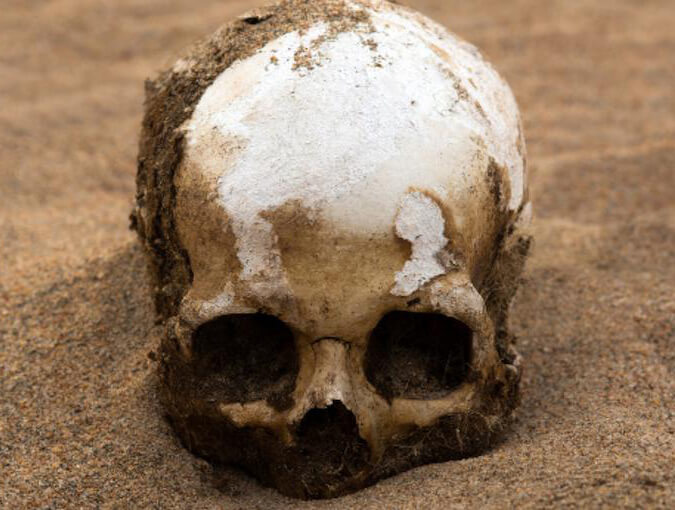The show must go on
Editorial
Arunita Banerjee

We are living through dismal days, among political wars, while the earth is steadily running a fever and life-forms are being pushed to a biological annihilation.
About three decades ago, while the world leaders battled to prove their worth in terms of nuclear power and space travel, quite similarly like today; Harvard biologist E.O. Wilson, attributed the existence of human beings to 'lower animals' - animals without a spinal cord - invertebrates. In a journal article titled 'The Little Things That Run the World', he wrote, "If invertebrates were to disappear, I doubt that the human species could live more than a few months."
A callous human-ego has led to this nomenclature, in which humans and other vertebrates - animals with a spinal cord - are referred to as 'higher animals'. And although this nomenclature pertains to intelligence among animals, the higher ones - humans - are not acting quite like it.
We live in the Anthropocene - the human dominated era of natural history. And we have been shaping and sizing the world to suit ourselves. The cost is the immense damage we have been doing to nature and natural systems. What started off as pollution of land, air and water, has led to a profound problem - climate change.
Three global agencies – NASA (National Aeronautics and Space Administration), NOAA (National Oceanic and Atmospheric Administration and the UK Meteorological office, have confirmed that the warmest cardinal decade ended with 2019, among records dating back to the mid-19th century, and the warming trend will continue in 2020. While we may not feel the temperature rise very much, we have been surrounded by marked examples of climate change in action – Unpredictable cyclones in South East Asia, snowfalls in hot deserts, devastating floods in South America and parts of Asia, ice-caps melting in the poles and the most recent Australian bush fires due to extreme drying of land, to name a few.
Seventeen year-old Swedish teenager Greta Thunberg, successfully managed to provide a world stage to the climate crisis campaign, by her sudden rise to international prominence. The last year witnessed an unprecedented number of climate strikes across the globe. Greta received humongous support globally, especially from the youth and children, alongside general public. In the 'global climate strike' week of September, 2019 alone, over 7.6 million people, across 185 countries, took to the streets demanding governments and other organisations to take action and implement policy changes to save the planet we live on.
And while the last few months saw climate change movement gain momentum, socio-political turmoil equivalently paced up in different parts of the world. Hostility between Saudi Arabia and Iran, along with the US involvement, is empowering the humanitarian crisis in the entire Middle-east: from Yemen to Lebanon. The Boko Haram insurgency in Nigeria, civil war in Sudan and increasing tensions in Cameroon, have piled up on to the already existing economic crises that the African countries struggle with. Political violence in Hong-Kong and India are steadily reaching proportions of becoming a global concern.
We are thus, moving towards a dystopian world of hate mongering, civil wars, unbreathable air, water shortage, natural calamities, poverty, hunger, all at once – 'The Uninhabitable Earth', that David Wallace-Wells described. Consequences of climate change will wreak havoc in social, economic and political terms, by creating an indispensable refugee crisis, when people start fleeing from uninhabitable areas.
With each passing day we spend, still trying to raise awareness about the climate crisis and implementing measures to contain the havoc, we also continue to add to our respective carbon footprints. However, the UNDP website holds that "Climate change is running faster than we are, but this is still a race we can win."
At this point, it is imperative that we realise, this is a race we 'have to' win. Species extinction rates are higher than ever now. Life-forms are being wiped out from the face of this earth in the ongoing 'sixth mass-extinction', which is being referred to as a process of 'biological annihilation', by the scientific community. And even though if this may take you by surprise, the progress of the climate crisis has the potential to wipe out human beings as well, just as any other obscure species about whose existence or extinction, you didn't care.
While humans fight each other and superpowers continue to become more powerful, the nemesis of mankind, which they themselves gave rise to, might just play a masterstroke and put an end to all wars and conflicts, by putting an end to the human race itself.
Arunita Banerjee is rarely 'free' and always has 'too-much on her plate'. She was meant to be a 'manager' of some sort, but ended up being a research scholar at IISER Kolkata. When she realised she is better at communicating science than doing it herself, she started freelancing at Research Matters, India BioScience, Live Wire and went on to become the Chief Editor of Cogito. She is usually found running around on campus, managing a cultural or official event, or busy making a film, or collecting/propagating art ideas, or petting dogs, or discussing socio-political issues with kids. On rare occasions, she is found behind a mess, which she calls her work-desk, discerning behavioural patterns of free-ranging dogs, at the Dog Lab.
signup with your email to get the latest articles instantly